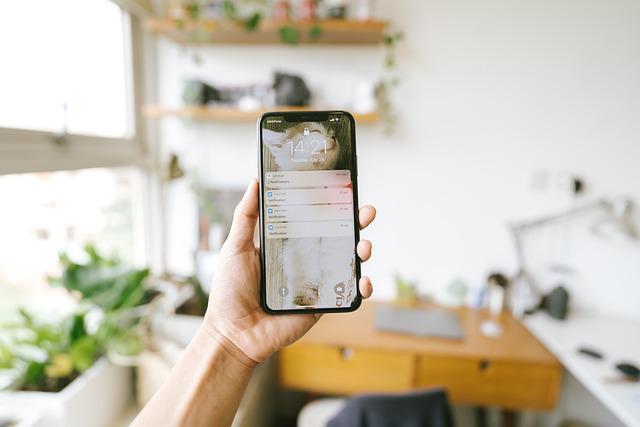Push Notification Authentication - Hoe het werkt en wat je moet weten
13 juli 2022 • beveiliging

Om uw bedrijfs- en klantgegevens veilig te houden, heeft u een manier nodig om gebruikers te authenticeren voordat u hen toegang verleent. Push Notification Authentication is een gemakkelijke, veilige manier om dat te doen. Deze blogpost bespreekt hoe het werkt en wat u moet weten om te beginnen.
U kunt pushmeldingen gebruiken om uw gebruikers te helpen veilig te blijven. Als u toegang heeft tot hun e-mailadres, kunt u hen een e-mail sturen met een link naar hun Facebook-account. Pushmeldingen maken het waarschijnlijker dat ze iets veiliger gebruiken dan alleen hun wachtwoord om in te loggen. Gebruikers kunnen hun autorisatiestatus controleren met een knop; meldingen kunnen in-band of out-of-band zijn.
De verantwoordelijkheid om te bewijzen dat u bent wie u zegt dat u bent, ligt bij de aanvrager. Dit gebeurt door het gebruik van pushmeldingen, waardoor het smartphone-gekoppelde authenticatiesysteem in uw handen is. Omdat pushmelding-authenticatie eenvoudig is en steeds populairder wordt, groeit het gebruik ervan.
Voordelen van Push Notification Authentication
Gebruikerscomfort
U kunt snel en eenvoudig een pushmelding van de app op uw telefoon accepteren om direct binnen te komen. U hoeft geen wachtwoord in te typen of iets te onthouden. Dit is ideaal voor mensen die al mobiele telefoons hebben en bekend zijn met mobiele systemen.
Beveiliging
Er zijn verschillende nadelen en voordelen aan elke optie. Wachtwoorden, hoewel ze beveiliging bieden, kunnen op verschillende manieren worden ontdekt of gelekt. Omdat de meeste mensen zich binnen enkele minuten kunnen inschrijven door te sms'en, heeft sms en multi-factor authenticatie (MFA) de potentie om SIM-swapping te ondergaan. Zelfs authenticator-applicaties zoals Authy en Google Authenticator die robuustere versleuteling dan sms gebruiken, kunnen worden gesim-swapt omdat de meeste mensen zich binnen enkele minuten via sms kunnen registreren.
U kunt zich bij OneLogin authenticeren met tekst- of 2D-beveiligingscodes. U kunt inlogtoegang en transacties toestaan of weigeren met een specifieke code. Simpelweg ja of nee kiezen is voldoende om veilig te authenticeren. Het wordt niet via internet verzonden, dus het is niet vatbaar voor man-in-the-middle-aanvallen.
Wrijvingsloze Multi-Factor Authenticatie
Google werkt eraan om het voor mensen gemakkelijker te maken om hun telefoons te gebruiken met de release van Android 9 Pie. Deze nieuwe versie van Android bevat verbeterde beveiligingsfuncties die het eenvoudiger en handiger maken om uw telefoon te gebruiken. Deze functies omvatten verbeterde push-authenticatie en telefoonvergrendelingsmogelijkheden.
Uw geregistreerde telefoon is de eerste factor van authenticatie. De tweede factor kan Touch ID, FaceID of een pincode zijn. MFA is nog steeds populair, vooral omdat het is gekoppeld aan het ontgrendelen van smartphones, maar dit type MFA is veiliger omdat het de gebruiker vereist om push-authenticatie te combineren met de vergrendelingsfunctie van hun telefoon.
Het aanbieden van een MFA-alternatief dat gemakkelijk te gebruiken is, zal uw klanten helpen u meer te vertrouwen. De term beveiligingshaatfactor verwijst naar de negatieve gevoelens van mensen wanneer nieuwe beveiligingsmaatregelen hun leven moeilijker maken zonder duidelijke voordelen te bieden.
Lage Kosten Beveiliging
2-Factor authenticatie is meer dan alleen een manier om hackers te stoppen en andere mensen uit uw netwerk te houden. Dit programma is flexibel en vereist geen hardware. Dat betekent dat het een kosteneffectievere optie is dan high-end beveiligingsoplossingen. Het is ook gemakkelijker op te zetten en te gebruiken, vooral als u uw bedrijf vanuit huis runt.
Een ander voordeel is dat het beheer eenvoudig is. Gebruikers kunnen de software op hun telefoons installeren zonder hulp van IT, en nieuwe versies worden automatisch gedownload en geïnstalleerd. Veel apparaten kunnen aan hetzelfde accountadres worden gekoppeld.
Nadelen van Push Notification Authentication
Vereist Internetverbinding
U moet een internetverbinding hebben om dit type authenticatie te gebruiken. Dus als u zich in een gebied met een zwak of geen signaal bevindt, kunt u problemen ondervinden bij het inloggen.
Vertrouwt op Derdenservice
Dit type authenticatie vertrouwt ook op een derdenservice, wat betekent dat een ander bedrijf toegang heeft tot uw gegevens. Als dat bedrijf een beveiligingsinbreuk heeft, kunnen uw gegevens in gevaar komen.
Vereist een Mobiel Apparaat
Zakenmensen die hun telefoons voor zaken gebruiken, voelen zich meer op hun gemak. Aan de andere kant kunnen sommige mensen dat misschien niet doen of willen doen omdat ze geen toegang hebben tot een smartphone. Bovendien raakt de batterij van uw telefoon na verloop van tijd leeg; dus u zult uw identiteit niet kunnen verifiëren met deze methode als uw telefoon leeg raakt.
Inbreuken op de beveiliging
Authenticatiesystemen zijn alleen zo veilig als de technologie die ze gebruiken. Push-authenticatie is bijvoorbeeld veiliger dan andere vormen van identificatie. Een frauduleus verzoek kan bijvoorbeeld per ongeluk door een gebruiker worden erkend. Het is te gemakkelijk om in de val te lopen van het klikken op “goedkeuren” na het ontvangen van een e-mail van een apparaat.
Pushmeldingen kunnen echter helpen om dit nadeel te verminderen. Wanneer een gebruiker een pushmelding ontvangt, zal deze hen vragen om de voorwaarden van de app te accepteren. “Gelieve verzoek ECG2 op het lokale systeem goed te keuren,” zegt de telefoon, en de gebruiker moet het nummer koppelen aan toestemming. Bovendien hebben onafhankelijke elementen geen invloed op de beveiliging van een app. Smartphones zijn net als elk ander technologisch apparaat met een besturingssysteem vatbaar voor aanvallen en infecties. Android-telefoons zijn bijzonder kwetsbaar voor aanvallen en malware.
Conclusie
Hoewel pushmelding-authenticatie enkele nadelen heeft, wegen de voordelen zwaarder dan de nadelen. Het feit dat het een goedkope beveiligingsmaatregel is die gemakkelijk op te zetten en te gebruiken is, maakt het een aantrekkelijke optie voor bedrijven.

beveiliging
admin is senior staff writer voor Government Technology. Ze schreef eerder voor PYMNTS en The Bay State Banner en heeft een B.A. in creatief schrijven van Carnegie Mellon. Ze woont buiten Boston.